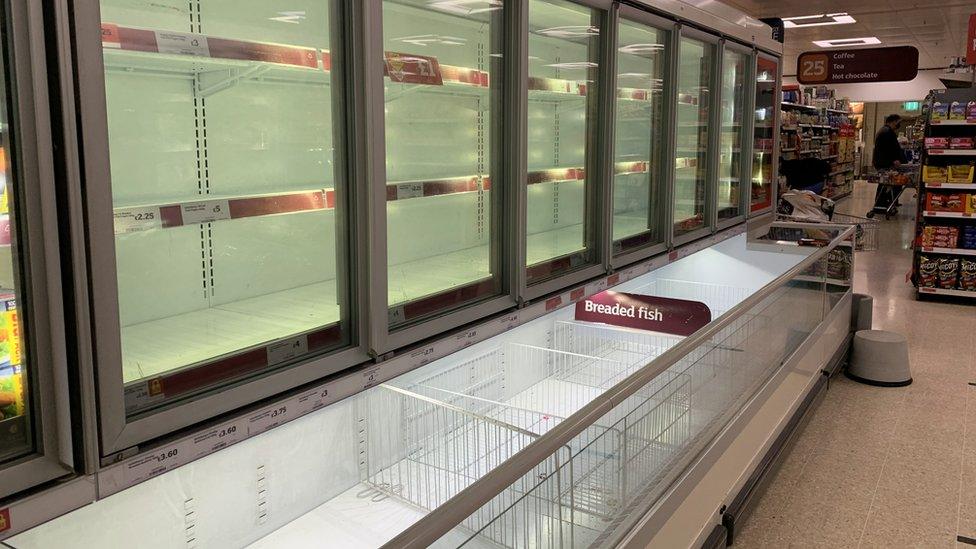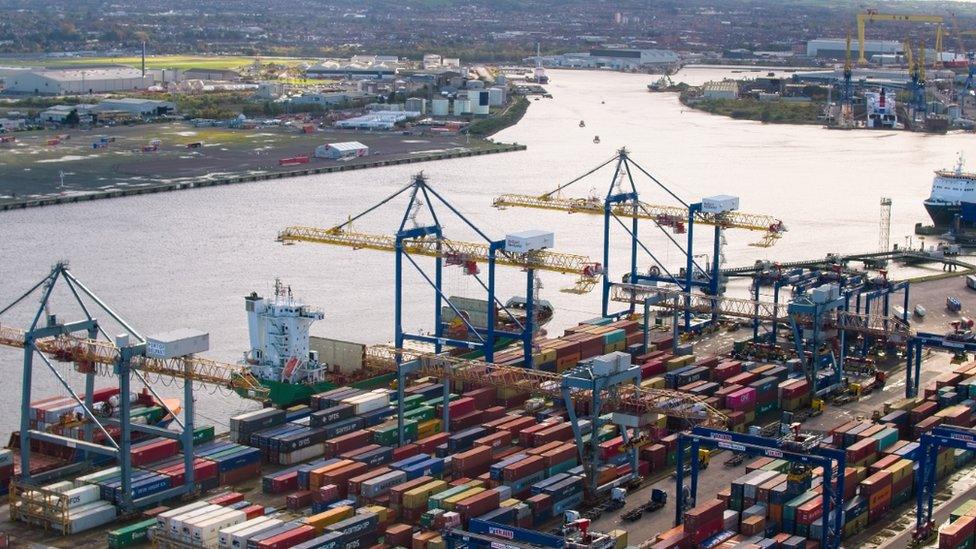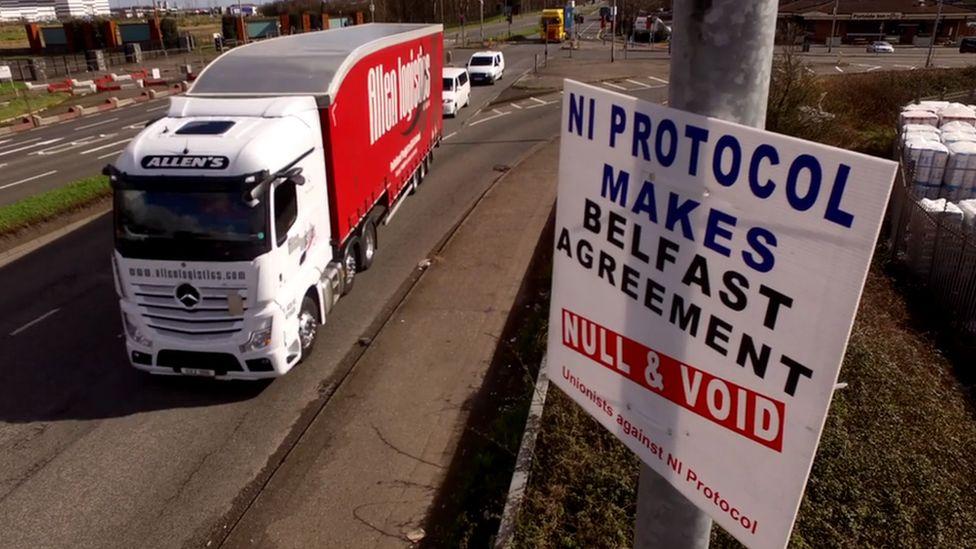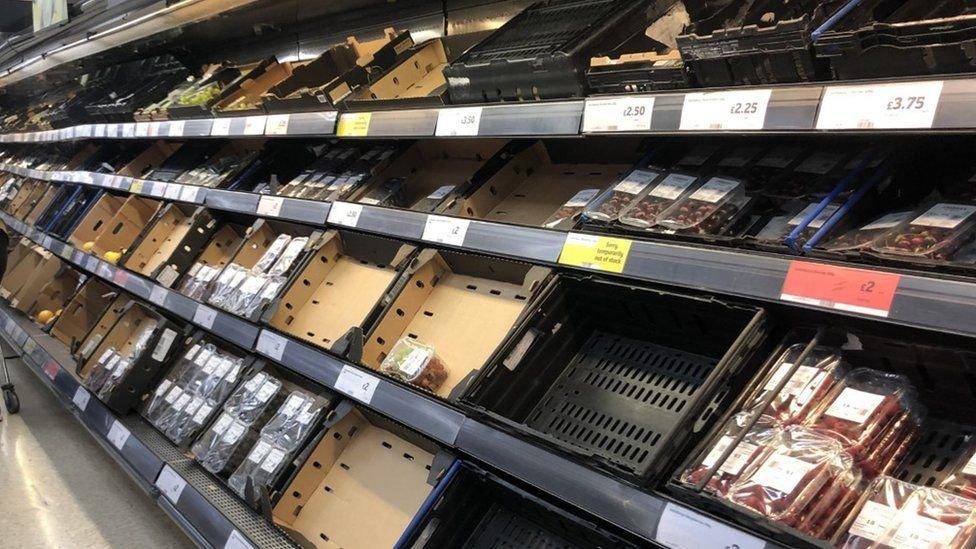Brexit: Supermarkets face problems after NI Protocol grace period
- Published

Aodhán Connolly said "time is ticking away" on the grace period, which ensures Northern Ireland's food supplies are not disrupted
Supermarkets in Northern Ireland will face "real, severe problems" in October if there are not measures to replace the current NI Protocol grace period, an industry representative has said.
Aodhán Connolly, from the NI Retail Consortium, was speaking to a House of Lords committee.
The grace period means supermarkets can send goods from GB to NI with reduced paperwork.
UK and EU officials are discussing potential long term solutions.
The Protocol means NI has remained a part of the EU's single market for goods so products arriving from GB undergo EU import procedures.
Normally food products entering the single market require a complicated piece of administration known as an Export Health Certificate (EHC) but supermarkets currently do not need those for most products moving from GB to NI.
Mr Connolly said: "There is a real concern that time is ticking away and we are facing some real, severe problems come October."
A UK government proposal, seen by the BBC, suggests introducing the certification requirements in four phases from October.
A broader agri-food agreement between the UK and EU is also a possibility though the UK's Brexit minister says it will be difficult to reach such a deal.

Stephen Kelly said there is a 'fundamental problem' with GB being used as a distribution hub for the island of Ireland
Meanwhile the Lords were told that some international businesses are assessing the potential benefits and investment opportunities.
The protocol means that businesses in NI can continue to send their goods to both GB and the EU without checks and controls.
GB businesses cannot access the EU in the same way.
Investment opportunities?
Stephen Kelly from Manufacturing NI said he has never been engaged with so many potential investment inquiries in NI.
He said one potential project could be worth up to £100m and provide 500 jobs.
He also pointed to a statement from Invest NI that since the end of the Brexit transition in January it has identified over 30 potential inward investment opportunities.
Those are at an early stage and it is not clear if the protocol is a factor in any of them.
However, Mr Kelly said the single biggest issue faced by NI manufacturers is the willingness and preparedness of GB suppliers to continue selling to NI.
He said there was a "fundamental problem" around GB being used as a distribution hub for the island of Ireland.
This relates to "rules of origin" which means that goods manufactured in the EU can face tariffs when entering the island of Ireland if they come through a GB distribution centre.
He said this issue is "a nonsense" that needs to be addressed by the EU and UK through the Joint Committee which oversees the protocol.
- Published18 May 2021

- Published17 May 2021
